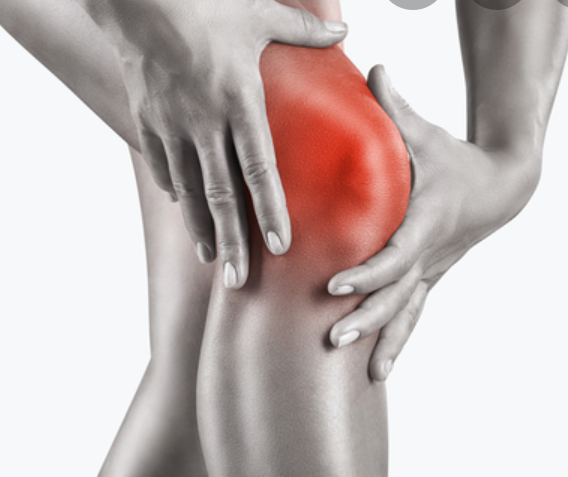Knee Burning Sensation
What is a knee burning sensation?
A burning sensation in the knee may be related to a number of different processes or disorders. For example, any type of burn to the skin (thermal, electrical or chemical burn) causes pain and burning at the site of the trauma. Damage to the nerves of the legs (peripheral neuropathy) causes a burning or tingling sensation medically known as paresthesia. Diabetes and alcohol abuse are two common causes of peripheral neuropathy.
The different forms of arthritis (inflammation of the joints) can produce pain and stiffness of the joints including the knee joint, and this pain may be perceived as a burning sensation in some cases.
When the arteries that supply the legs are narrowed due to atherosclerosis, a condition known as peripheral artery disease, pain occurs intermittently in the legs while walking (claudication). This may also be experienced as a burning sensation and occurs when there is inadequate oxygen delivery to the tissues in the legs due to the narrowed arteries.https://fd6667fa831c03a3175e11077044f7c2.safeframe.googlesyndication.com/safeframe/1-0-37/html/container.html
The sudden onset of a burning or tingling sensation in the leg on one side of the body may occur with other symptoms that might indicate a serious or life-threatening condition such as stroke. Seek immediate medical care (call 911) if you experience sudden weakness or numbness in one leg.
If your knee burning sensation is persistent or causes you concern, seek prompt medical care.
What other symptoms might occur with knee burning sensation?
Knee burning sensation may accompany other symptoms, which vary depending on the underlying disease, disorder or condition. Symptoms that cause a burning sensation in the knee may, in some cases, involve other body systems or cause the same symptoms elsewhere in the body.
Localized symptoms that may occur along with knee burning sensation
Knee burning sensation may accompany other symptoms affecting the knee area including:
- Joint stiffness
- Leg pain and swelling
- Muscle weakness
- Redness or warmth
- Skin blistering or oozing fluid
- Tingling or other unusual sensations in the hands or feet
Other symptoms that may occur along with knee burning sensation
Knee burning sensation may accompany symptoms elsewhere in the body including:
- Burning feeling elsewhere on the arms or legs
- Fever
- Shoulder, arm, hand or finger pain
- Stiffness or swelling of other joints
Serious symptoms that might indicate a life-threatening condition
In some cases, knee burning sensation may be a symptom of a life-threatening condition that should be immediately evaluated in an emergency setting. Seek immediate medical care (call 911) if you, or someone you are with, have any of these life-threatening symptoms including:
- Loss of vision or changes in vision
- Paralysis
- Progressive weakness and numbness in the legs
- Slurred speech
What causes a knee burning sensation?
A knee burning sensation can develop because of burns or injuries to the skin as well as to processes that lead to inflammation in the knee joint. The pain of intermittent claudication, which occurs when there is insufficient blood supply to the legs in peripheral artery disease, may be perceived as a burning sensation.
Superficial causes of knee burning sensation
A knee burning sensation may be caused by burns to the skin surface including:
- Chemical burns
- Electrical burns
- Thermal burns including sunburn
Inflammatory causes of knee burning sensation
Diseases such as the different forms of arthritis that cause inflammation within or around the joints can cause pain around the knee that may be perceived as burning in some cases. Examples include:
- Ankylosing spondylitis (inflammation of joints between the vertebrae of the spine)
- Bursitis (inflammation of the protective fluid-filled sacs around the joint)
- Chondromalacia (problem with the structure of the cartilage of the kneecap)
- Gout (type of arthritis caused by a buildup of uric acid in the joints) and pseudogout
- Infectious arthritis (infection of the joint space)
- Osteoarthritis
- Psoriatic arthritis (arthritis associated with psoriasis of the skin)
- Rheumatoid arthritis (chronic autoimmune disease characterized by joint inflammation)
- Systemic lupus erythematosus (disorder in which the body attacks its own healthy cells and tissues)
Neurologic causes of knee burning sensation
Damage to the nerves of the legs (peripheral neuropathy) causes a burning or tingling sensation medically known as paresthesia. Diabetes and alcohol abuse are two common causes of peripheral neuropathy. Neurologic causes of knee burning sensation include:
- Alcohol abuse
- Diabetes mellitus
- Nerve entrapment or compression
- Peripheral neuropathy due to all causes
Vascular causes of knee burning sensation
A knee burning sensation may be related to the pain of intermittent claudication, which occurs when there is insufficient blood supply to the legs in peripheral artery disease. In this case the pain may be felt anywhere in the lower extremities.
Serious or life-threatening causes of knee burning sensation
In some cases, knee burning sensation may be a symptom of a serious or life-threatening condition that should be immediately evaluated in an emergency setting. These include:
- Bone tumors
- Osteomyelitis (infection of bone)
- Stroke
Questions for diagnosing the cause of knee burning sensation
To diagnose your condition, your doctor or licensed health care practitioner will ask you several questions related to your knee burning sensation including:
- How long have you felt a knee burning sensation?
- Is the burning sensation present on only one knee or both knees?
- Do you have any other symptoms?
- Have you injured your knee?
- Does anything relieve or worsen the sensation?
What are the potential complications of knee burning sensation?
Complications of untreated knee symptoms can be serious. Because knee burning sensation can be due to serious disease, failure to seek treatment can result in serious complications and permanent damage. Once the underlying cause is diagnosed, it is important for you to follow the treatment plan that you and your health care professional design specifically for you to reduce the risk of potential complications including:

